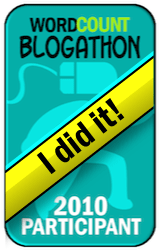Have you ever been involved in a job that became so frustrating, so agonizing, so detrimental to your personal well-being that you...you...you just wanted to, well, quit?
I run into such jobs every now and then. I can recall one from a few years back that I just knew left the bridge burning behind as I walked away. Later, I found out it didn't.
But, at the time, I sure thought that was the case. But it had to be done. Here's why:
I was working on a trend story for a business publication about building and office security systems. The editor had assigned me a story that just wasn't there. Every source she gave me, and every source I contacted either wouldn't provide information, discuss the idea, or wouldn't respond at all. I'm talking associations and everything. It was frustrating.
And in the middle of trying to track down sources, information, quotes, and a story line that would fly, I was sick with the flu.
C'mon! I just needed 800 words! I had all the background detail. I just needed the quotes to personalize the story and a few anecdotes to help illustrate something. Anything. I felt desperate!
Then, I finally got a source. I finally felt like I could get somewhere on this story. So I sent him questions by e-mail, his preference. He answered them promptly. But at the very bottom of all of his lengthy responses, he wrote this: "I don't want to be quoted, and I don't want you to use this information in print." What?! This wasn't a top security issue. It wasn't even going to cause any kind of embarrassment to anyone or any thing. There was no crisis involved. He knew I was interviewing him for a story. I just didn't get it. The story was about a current trend and what the industry was doing about it. I was left wondering: Then why on earth did he respond at all?
But I didn't take much time to ponder that. I was sick. And I was tired. Without thinking about it too much, I immediately sent an e-mail to my editor. I'd been corresponding with her off and on for two weeks, keeping her updated on the progress, mostly lack thereof, questioning whether we'd get a story at all. But she just kept urging me to go on. Trust me. The pay was minimal. And my next action was imminent. I told my editor she could have the story back. I could no longer spend time on it. It was beginning to affect my bottom line. Or, I wrote something to that effect. In other words, I quit.
Not surprisingly, I never heard back from her again. And I had to be okay with that, because the job really wasn't helping me to grow my business. I didn't need the clips. I needed income. After several years of freelancing for this publication, I had come to the conclusion that I could simply move on and find higher paying assignments elsewhere. I did that. When I later reconnected with this editor, she never mentioned this story. Maybe she got it, after all.
The point is, there are times when you need to let go of those business relationships that aren't moving you forward. There are good times to quit. And successful people do this frequently, says Seth Godin, marketing guru, author, and popular buisness blogger.
In Godin's 2007 "little book that teaches you when to quit (and when to stick) called The Dip, that's exactly what he says. You have to have the guts to know when it's time to move on. A lot of people in my business don't know that. We think we have to keep doing something for the wrong reasons: for clips; for the chance to have a job; just because we started it; for the publication credit; for whatever. But if the job you're doing isn't moving you in the direction that you know you want to go, in the direction that fuels your focused and well-thought out goals, then you might need to pay more attention to Godin's advice about the concept of "strategic" quitting:
_Ride out the dip--the parts of a job that may seem less than thrilling--if the end result gets you where you want to go. It will likely pan out, Godin says.
_Get out of the dead-end job, or what Godin calls the cul-de-sacs, quickly. Then you can focus your direction more accurately.
The bottom line: Never quit when the finish line is in sight. But if you don't see it coming at all, seriously consider this contest may not be for you. Godin says, the key is to "quit the right stuff at the right time." It could affect your well-being to do otherwise.
What are your thoughts? Do you think I quit the right job at the right time? Have you ever quit a job when you thought that was the best you could do? Post a comment and share your story. I'd love to hear from you.
_
Friday, August 7, 2009
Subscribe to:
Post Comments (Atom)












5 comments:
Hmmm. I'm going to guess a similar philosophy could apply to marriage?
Jennifer, Yeah. The philosophy could apply to any situation--a job, a marriage, volunteer work, etc. Lots of variables involved, though, as you can imagine. I hope I'm not simplifying the concept. Seth Godin makes some very good points in his book. Interesting insights that make you think. He writes that most people quit things but may not do it successfully. He explains how you can. Have you read The Dip? Gotta get over to your blog and check out how the boys are doing? ;-)
I like Suzy Welch's 10-10-10 rule...how will your actions leave you feeling in 10 minutes, 10 months or 10 years. Sometimes, that helps get through the discomfort of quitting...or riding out the dips!
Letting go is difficult for many of us. It's certainly true for me. I don't have many experiences quitting jobs; I've only had two in my adult life, but I recognize it's time to let go of a situation when it starts to feel like I'm forcing a square peg in a round hole. When that feeling crops up, it's time to make a change. Life is a series of stepping stones, and when we leave something, it's often to get to a better place. Trust your gut. I will have to check out The Dip; I read Seth's blog and was tickled to see you do as well! Jennifer, your question about the philosophy applying to marriage is certainly deeper than leaving a job. I don't know where you are in the life journey, but only offer a suggestion to anyone facing a troubled marriage and that is to more slowly and carefully. Sometimes when we're frightened, we tend to run. Like Jackie said, there are many variables and I certainly agree. Best of luck to you. Jackie, thanks for the book tip!
Mimi, I hadn't heard that formula of Suzy's, but I like it.
Wondering if Jennifer is just asking a hypothetical question...
Hopefultransitions, you're very welcome for the book suggestion. You can thank my friend Ruth Urban for that really. She suggested it to me.
Thank you all for commenting and continuing the dialogue, so we can learn from each other.
Post a Comment